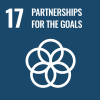In its 2012 Report, the MDG Gap Task Force has had difficulty identifying areas of significant new progress towards delivering on commitments to the Global Partnership for Development, and for the first time there are signs of backsliding. The volume of official development assistance (ODA) fell for the first time in many years, obstacles to exports from developing countries are on the rise, and numerous developing countries are facing debt difficulties.
With less than three years until 2015, there is no apparent commitment by donor Governments to reverse the trend in time, and it is likely that fewer MDGs will be reached in fewer countries as a result.
The Report finds that the protracted global economic crisis has begun to take its toll on international development cooperation. With a $167 billion gap between actual aid disbursements and the amounts committed, total ODA should more than double in order to meet the UN target. A delayed impact of the economic crisis on donor country budgets threatens to further widen this gap. Negotiations under the Doha Round for a fairer multilateral trading system remain at an impasse eleven years after they started, and the current economic situation has lured Governments back into using protectionist trade policies.
There has also been limited progress in fulfilling other key aspects of the global partnership for development. Despite the poorest countries receiving generous debt relief, many still face unsustainable obligations. And while new financing has been pledged to some disease-specific global health funds, there has been little improvement in recent years in increasing availability and affordability of essential medicines in developing countries. To address the current situation, the MDG Gap Task Force calls upon the international community to honour its promises and close the gaps between commitments and delivery.
 Welcome to the United Nations
Welcome to the United Nations
